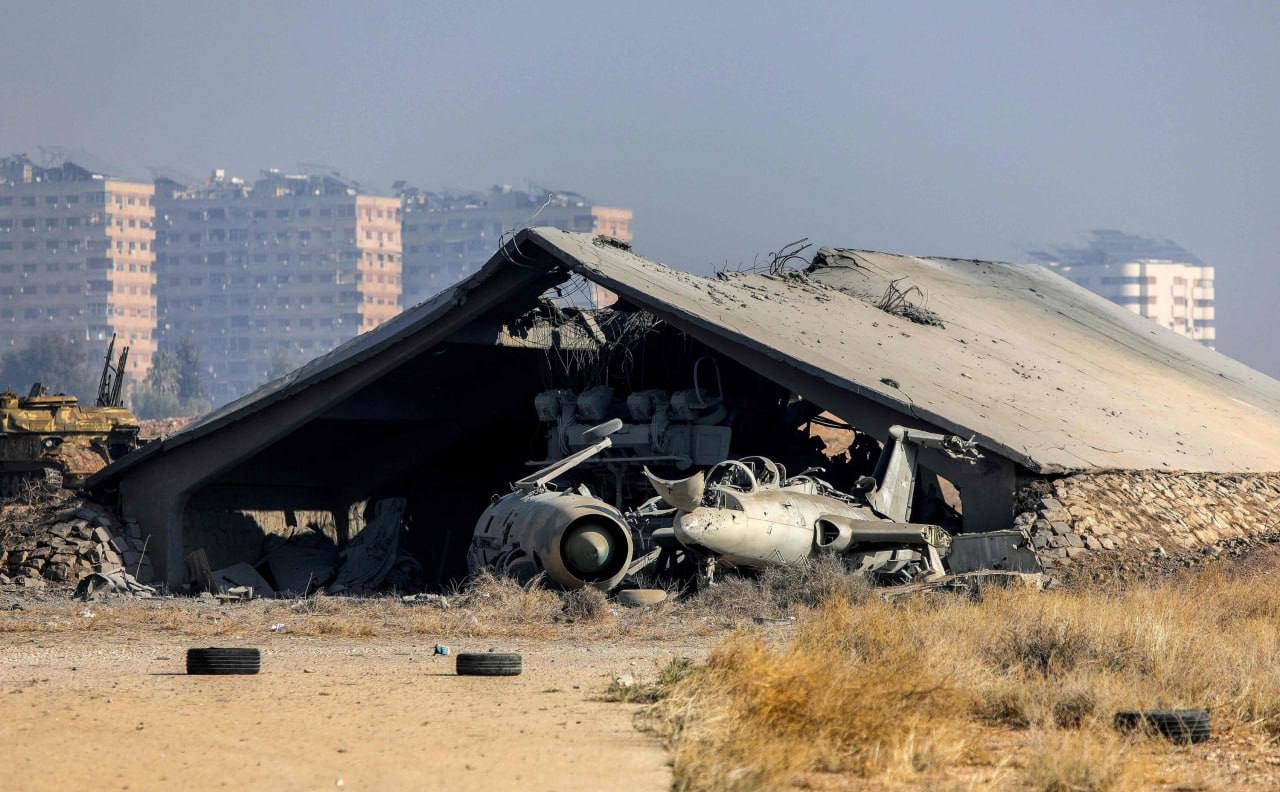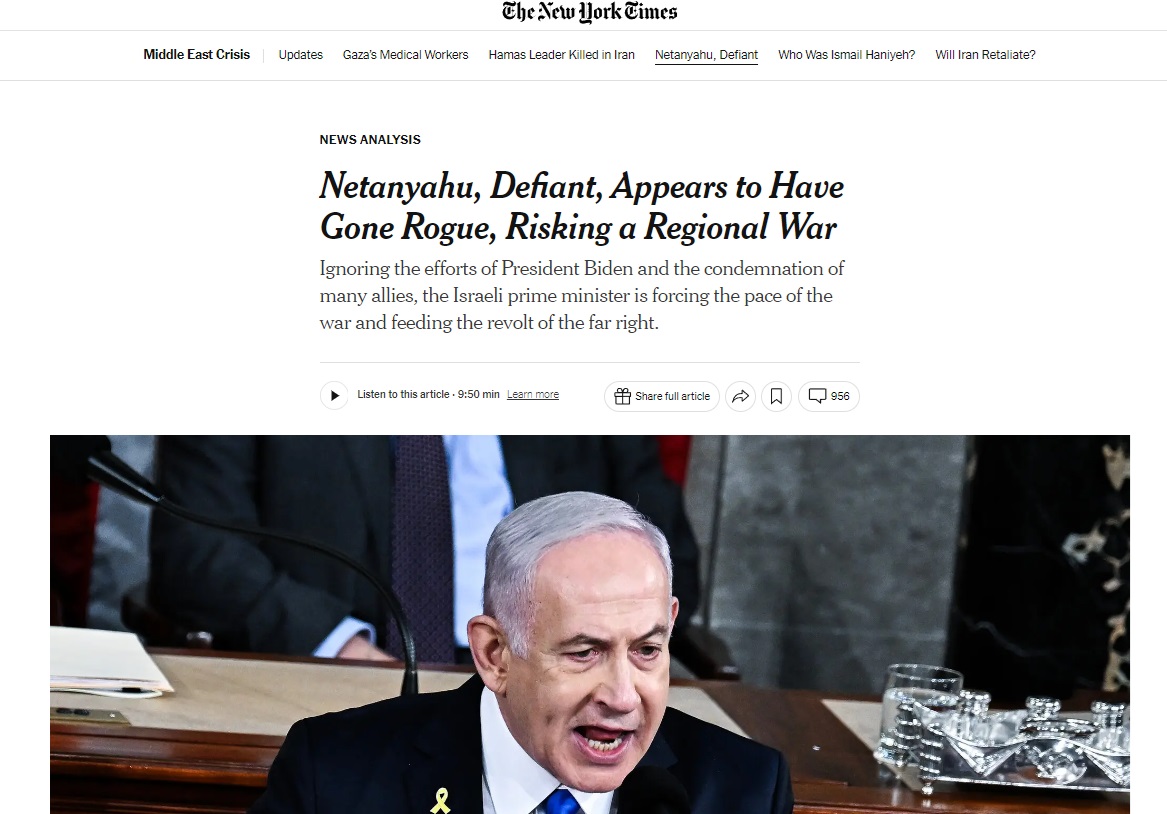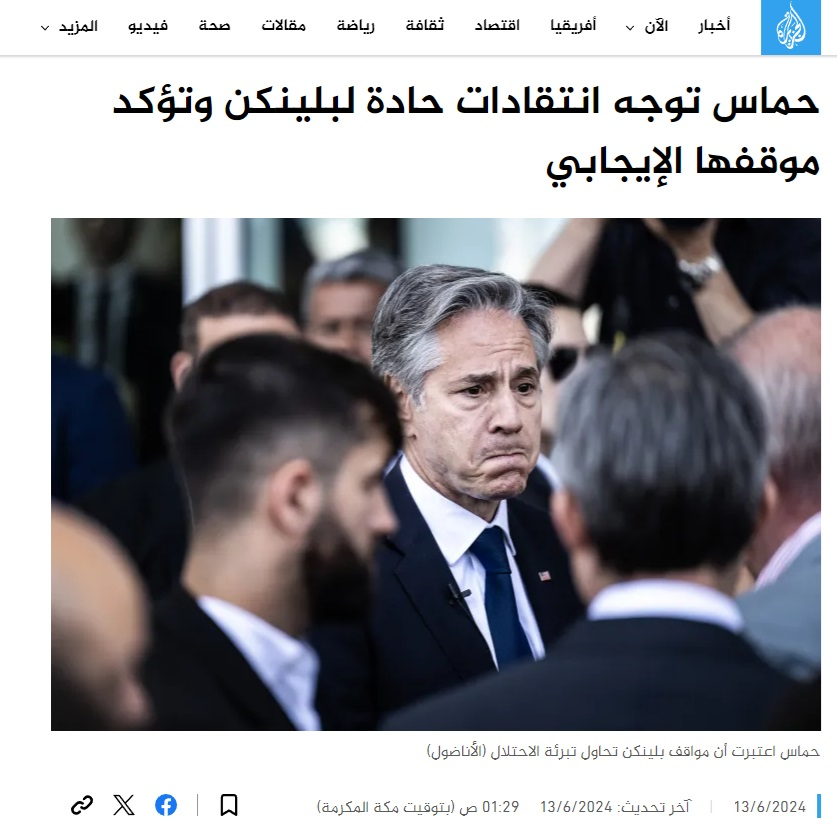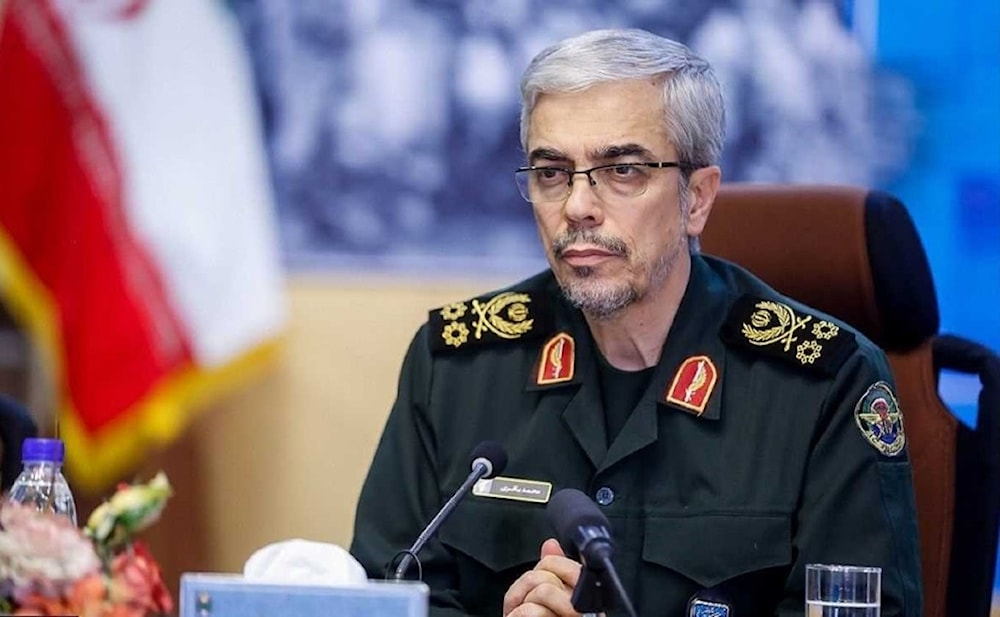
Media review: Is Syria on the verge of a being a failed state?
From the developments of the last few days alone, Syria seems to be on a path of being a failed state in a region that...

From the developments of the last few days alone, Syria seems to be on a path of being a failed state in a region that...

Axios reported that US President Joe Biden asked Israeli Prime Minister Benjamin Netanyahu, during a "difficult" phone call between them on Thursday, to stop escalating tensions in the region, following the assassination of Hamas political bureau chief Ismail Haniyeh and Hezbollah military commander Fouad Shukr. One US official said that Biden warned Netanyahu that if he escalated again, he should not rely on the United States to save him.
Axios quoted a senior Israeli official as saying that Biden raised his voice during the call and told Netanyahu that he wanted him to reach an agreement within a week or two.
A source familiar with the matter told the website that the US president told Netanyahu that the region is currently at a turning point and that every effort needs to be made to end the war in Gaza and achieve regional stability, even if the agreement is not ideal.
In contrast, the website quoted Netanyahu’s office as saying that the Israeli prime minister assured Biden that he is only working according to Israel’s security requirements. His office reported that "Prime Minister Netanyahu told President Biden that he appreciates the American support, and as Prime Minister of Israel he acts solely according to the security needs of the State of Israel."
Meanwhile, the Israeli Broadcasting Corporation said that great tension dominated a meeting Netanyahu held with the Israeli negotiating team on Wednesday.
The head of the Shin Bet internal security service, Ronen Bar, was quoted as saying to Netanyahu during the meeting, “We feel that you are sending us to negotiate, and then you are making changes to the outlines of the deal.”
Meanwhile, The New York Times published a dramatic editorial declaring "Netanyahu has Gone Rogue", and explaining that by "Ignoring the condemnation of allies, Prime Minister Benjamin Netanyahu of Israel is forcing the pace of the war and feeding the revolt of the far right."

Multiple media outlets, including Aljazeera, reported about the release of drone footage captured by Hezbollah showing many sensitive sites with extreme details. This display of capability might be what prompted France and the US to start a mission to dial down the tension at the border between Hezbollah and Israel.
Among the sites shown in the scenes is the Rafael Military
Industries Complex, a military industrial zone affiliated with Rafael, which
includes a large number of factories, warehouses and testing fields, where
components of effective air defense systems are manufactured and assembled,
especially the Iron Dome and David's Sling.
The scenes also showed a real-time, high-resolution tour of
the entire Haifa port and the surrounding area.

In another visit to the Middle East, US Secretary of State Antony Blinken keeps making general statements about the ceasefire while refusing to provide any...

Iran is no stranger to situations where the holder of the top executive branch of government is vacated. Twice since 1979 and Iranian head of...

It may escape many, but the connection between Iran’s strike on Israel in retaliation for the latter’s attack on its diplomatic building in Syria is...